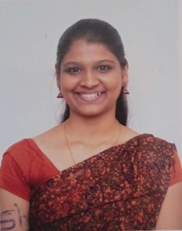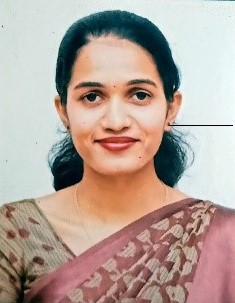Introduction
The Department of UG Statistics was established in the academic year 2013-14 with the vision of providing quality education in statistical science. Since its inception, the department has been committed to fostering analytical skills and statistical literacy among students, preparing them for academic excellence and professional success.
Vision
To cultivate analytical minds capable of solving real-world problems through statistical reasoning and data-driven approaches.
Mission
Equip students with robust knowledge in statistical theory and applications, critical thinking skills, and proficiency in modern statistical tools and programming languages.
Career Opportunities
Graduates of the undergraduate Statistics program are equipped for diverse and dynamic career paths, including:
- Industry Roles
- Data Analyst: Analyzing and interpreting complex datasets for actionable insights.
- Business Analyst: Bridging the gap between data and decision-making in organizations.
- Actuary: Assessing financial risks using mathematical and statistical methods.
- Market Research Analyst: Evaluating market conditions to guide business strategies.
- Financial Analyst: Supporting investment decisions through data-driven models.
- Technology and Innovation
- Data Scientist: Employing machine learning techniques and predictive analytics.
- Statistical Programmer: Developing statistical models and implementing them in software tools.
- AI/Machine Learning Engineer: Creating models to automate decision-making processes.
- Government and Policy
- Statistician: Conducting surveys and analysis for policy development and implementation.
- Epidemiologist: Analyzing health data for disease prevention and control.
- Demographer: Studying population statistics to inform government planning.
- Research and Academia
- Pursuing advanced degrees (Master’s or Ph.D.) in Statistics, Data Science, or related fields.
- Research roles in academia, healthcare, and scientific institutions.
- Emerging Fields
- Sports Analytics: Analyzing performance metrics for athletes and teams.
- Environmental Statistics: Studying data related to climate change and sustainability.
- Bioinformatics: Interpreting biological data for medical research.
Facilities and Resources
- Classrooms: Well-equipped classrooms.
- Labs: High-performance computer labs with statistical software like R, Python, and SPSS.
- Library: Extensive collection of statistical textbooks, journals, and e-resources.
- Collaborative Spaces: Study lounges for group discussions.
Curriculum Structure
Teaching Faculty
| Name | Designation | Qualification | Photo |
| Mrs. Shilpa N. H. | Head of Department | M.Sc. |  |
| Miss. Madhushree Jain | Assistant Professor | M.Sc. |  |
Academic Achievements
| Name | Batch | Rank | Photo |
| V Anusha Kamath | 2020 | 3rd Rank |
Faculty Development
- Encourage faculty to pursue ongoing research and collaborations.
- Regular training programs on emerging statistical methodologies.
Student Support
The department is committed to fostering an inclusive and supportive learning environment.
- Slow Learners’ Classes: Special sessions are conducted for students who need additional guidance in understanding core concepts. These classes focus on:
- Strengthening foundational knowledge.
- Personalized teaching approaches to address individual challenges.
- Regular assessments to monitor progress and provide feedback.
Co-curricular Activities
- Workshops and Seminars
- Data Visualization Tools (Tableau, Power BI).
- Advanced Machine Learning and AI.
- Guest Lectures: Invite professionals from academia, industry, and government.
- Student Clubs
- Statistical Programming Club.
- Data Science and Analytics Club.
- Competitions
- Case study competitions.
- Hackathons and Data Challenges.
Community Engagement
- Organize statistical literacy programs for local communities.
- Conduct surveys and data analysis projects that address societal issues.
Graduate Outcomes
Graduates should possess:
- Strong analytical and problem-solving skills.
- Proficiency in statistical software and programming languages.
- Ability to communicate statistical findings effectively.
- Readiness for careers in data science, biostatistics, actuarial science, or further academic pursuits.
Contact
statistics.ug@alvascollege.org


